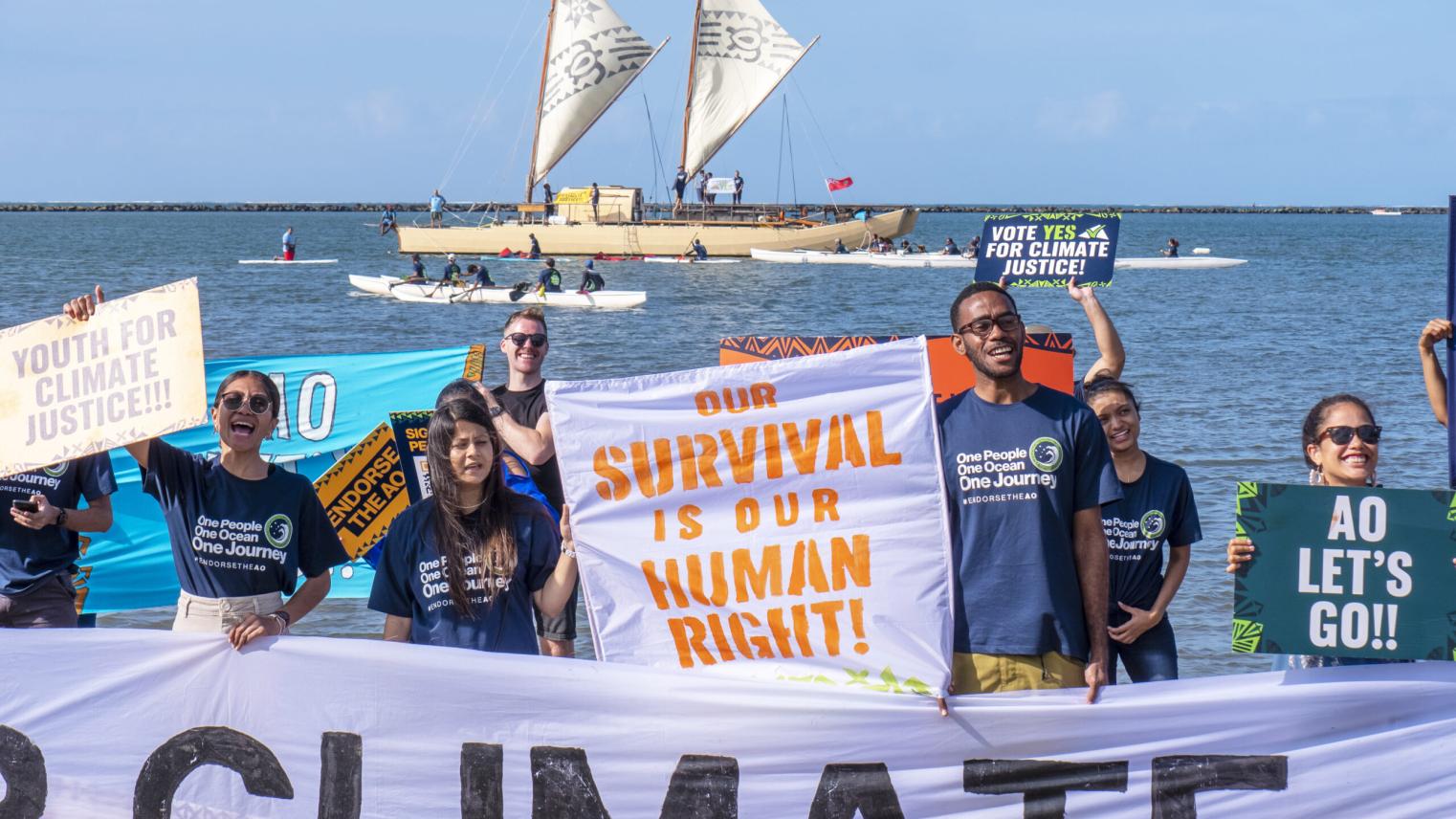Renewed hope: Why the ICJ climate decision matters to us all

By Associate Professor Siobhan McDonnell
The Advisory Opinion from the International Court of Justice on the “Obligations of States in Respect of Climate Change” is historic. It establishes clear obligations and attributions in international law. Further, it will lead to a new understanding of climate change obligations in international law in the contexts of treaty-making, state-to-state relations and domestic litigation. In these ways it offers renewed hope both for climate-vulnerable states and their people, and for those too often on the front lines of climate-induced disasters, such as Indigenous and socially disadvantaged people.
The opinion clearly sets out the climate change obligations of all states under international law. In particular, it makes clear that all states have an obligation to mitigate the impacts of carbon emissions and limit the global temperature increase to 1.5 degrees Celsius beyond pre-industrial levels, in accordance with the Paris Agreement. Maintaining a “1.5-aligned” global temperature pathway is crucial for many climate-vulnerable countries, and global temperature increases beyond 1.5 degrees represent an existential crisis for Pacific atoll states. It is for this reason that for many years the Pacific and the Alliance of Small Island States have both run with the “1.5 to Stay Alive” campaign at various climate governance meetings.
To meet their current obligations under the Paris Agreement (Article 4, Paragraph 2) all state parties to the agreement must prepare Nationally Determined Contributions (NDCs) that describe how each state intends to achieve its domestic climate change mitigation measures. Australia is yet to submit its latest, third-round NDC (termed NDC 3.0). It will be important to see if this is 1.5-aligned, given how important this is to the Pacific.
The Advisory Opinion also finds that states have an obligation to limit fossil-fuel production and consumption. This includes the granting of exploration licences and the provision of fossil fuel subsidies. In 2024, Australia had among the world’s highest per-capita emissions for all greenhouse gases, double those of China and nine times bigger than India’s. In 2022, Australia was the eighth-largest emitter of fossil-fuel CO2 per capita. This is purely on a domestic basis, without factoring in Australia’s exports. In 2024, Australia was the world’s third-largest fossil fuel exporter after the United States and Russia.
Analysis was undertaken in 2024 ahead of the decision to approve Woodside Energy’s North West Shelf (NWS) LNG plant in Western Australia, through to 2070. As well as creating possible damage to a newly listed World Heritage Murujuga rock-art site, domestic emissions from the operation of the NWS plant averaged around 6.9 million CO2-equivalent tonnes of greenhouse gas emissions annually from 2018 to 2024. Leading climate advisory group Climate Analytics has stated that the Australian government’s “NWS decisions undermine the Paris Agreement and chances of limiting warming to 1.5oC”.
So why does it matter if Australia continues to mine, explore for and subsidise fossil fuel products? The Advisory Opinion says that where states fail to protect the climate system from anthropogenic greenhouse gas emissions this could give rise to legal consequences such as reparations and compensation. The ICJ goes on to discuss material and immaterial loss and damage caused by climate change: “in the circumstances of climate change caused by emissions of [greenhouse gases], restitution may take the form of reconstructing damaged or destroyed infrastructure, and restoring ecosystems and biodiversity … In the event that restitution should prove to be materially impossible, responsible States have an obligation to compensate”. So, where states breach their climate change obligations under treaties and customary law, this may constitute a wrongful act and give rise to reparations and compensation.
The Advisory Opinion finds that all states must ensure they meet their international human rights obligations including the rights to ensure life, health and a clean and safe environment. While the right to a healthy environment has been the subject of advocacy through various United Nations bodies, including the General Assembly, its further articulation in this decision, and its clear link to other human rights, provides a firm basis for further future litigation. Moreover, the ICJ opinion states clearly that climate change impacts have clear implications for the enjoyment of many other human rights.
Together, the legal obligations set out by the ICJ will have profound implications both for domestic litigation and for future negotiations — both between states and at the United Nations under various treaties. This will also help to shape the negotiations between Australia and the Pacific as we think through our COP31 partnership, including on how to maintain the 1.5-aligned pathway that is so vital to the Pacific.
Finally, the Advisory Opinion is a victory for Pacific Islands people and for people power. Too often climate change is a bad news story. Let us celebrate some good news. Let us all be grateful to the people of Vanuatu, and of the Pacific, for never giving up and for bringing us hope.
This article was first published on the Devpolicy Blog.
Related content

